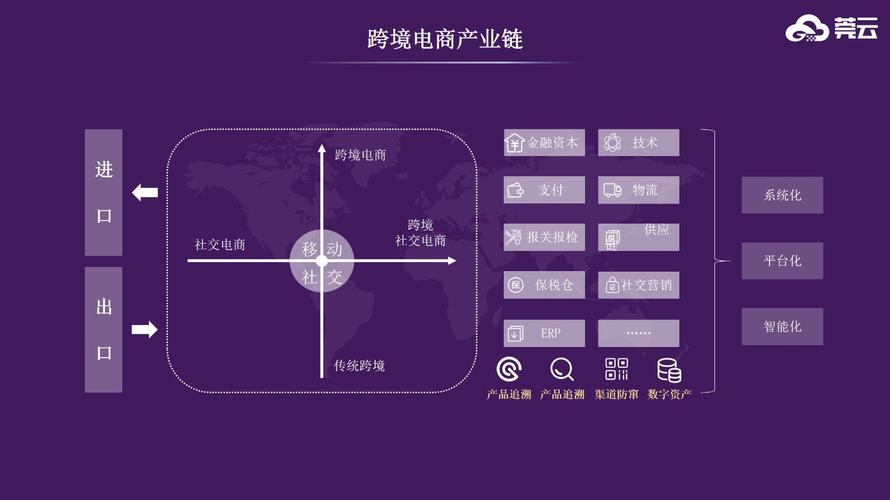Title: Overcoming Pain Points in CrossBorder ECommerce with Blockchain Technology

Crossborder ecommerce has revolutionized global trade by enabling businesses to reach consumers worldwide. However, it comes with its own set of challenges, ranging from inefficient payment systems to complex supply chain management. Blockchain technology offers innovative solutions to many of these pain points, promising transparency, security, and efficiency. Let's delve into the key pain points of crossborder ecommerce and explore how blockchain can address them.
1. Payment Frauds and High Transaction Fees:
One of the major challenges in crossborder ecommerce is the risk of payment frauds and high transaction fees associated with traditional payment methods. Blockchainbased payment systems can mitigate these risks by providing secure, transparent, and costeffective transactions. Smart contracts facilitate automated payments upon the completion of predefined conditions, reducing the need for intermediaries and minimizing transaction costs.
2. Complex Supply Chain Management:
Managing the supply chain in crossborder ecommerce involves numerous intermediaries, leading to increased complexity, lack of transparency, and higher chances of errors or fraud. Blockchain technology offers a decentralized and immutable ledger that enables transparent and traceable supply chain management. Through blockchain, stakeholders can track the movement of goods from the point of origin to the final destination in realtime, ensuring product authenticity and reducing the risk of counterfeit goods.
3. Lack of Trust Between Buyers and Sellers:
Trust is paramount in ecommerce, especially in crossborder transactions where buyers and sellers may not be familiar with each other. Blockchain's decentralized nature and cryptographic algorithms provide a trustless environment where parties can interact directly without relying on intermediaries. Smart contracts enable automated escrow services, releasing funds to sellers only upon the successful delivery of goods, thus fostering trust between buyers and sellers.
4. Lengthy and Inefficient Customs Processes:
Customs clearance processes can be lengthy and inefficient, causing delays and additional costs in crossborder ecommerce transactions. Blockchainbased solutions can streamline customs processes by digitizing and automating documentation, such as invoices, certificates of origin, and customs declarations. This not only reduces paperwork but also improves the accuracy and speed of customs clearance, expediting the movement of goods across borders.
5. Currency Exchange and Remittance Challenges:
Dealing with multiple currencies and navigating complex remittance processes pose significant challenges for crossborder ecommerce businesses. Blockchainbased digital currencies, such as stablecoins, offer a viable solution by providing instant, lowcost, and borderless transactions. Moreover, blockchainpowered remittance platforms eliminate the need for traditional banking intermediaries, enabling faster and cheaper crossborder money transfers.
6. Data Privacy and Security Concerns:
Protecting sensitive customer data and ensuring privacy and security are critical in crossborder ecommerce. Blockchain's decentralized and cryptographic principles provide a robust framework for data privacy and security. By encrypting transactional data and storing it across multiple nodes in the network, blockchain minimizes the risk of data breaches and unauthorized access. Additionally, permissioned blockchains allow businesses to control access to sensitive information, ensuring compliance with data protection regulations.
7. Intellectual Property Rights Protection:
Crossborder ecommerce exposes businesses to the risk of intellectual property infringement, such as counterfeiting and unauthorized reproduction of products. Blockchain technology offers a solution by creating immutable records of intellectual property rights, including patents, trademarks, and copyrights. Through blockchainbased registries and smart contracts, businesses can enforce their intellectual property rights, track the ownership and usage of their assets, and mitigate the risk of infringement.
In conclusion, while crossborder ecommerce presents various challenges, blockchain technology holds immense promise in overcoming these pain points. By enhancing transparency, security, and efficiency in payment systems, supply chain management, trust mechanisms, customs processes, currency exchange, data privacy, and intellectual property rights protection, blockchain empowers businesses to thrive in the global marketplace. Embracing blockchainenabled solutions can revolutionize crossborder ecommerce, driving innovation, and fostering greater trust and collaboration among stakeholders.
Sources:
1. Deloitte "Blockchain in the Retail, Consumer Goods, and Wholesale Industries"
2. World Economic Forum "Supply Chain 4.0: Blockchain as a Solution for Supply Chain Transparency and Sustainability"
3. IBM Institute for Business Value "Building Trust in Government: Exploring the Potential of Blockchain"
4. International Chamber of Commerce "The ICC Intellectual Property Roadmap: Mapping the Future of Intellectual Property"






